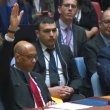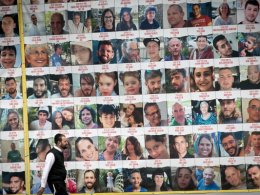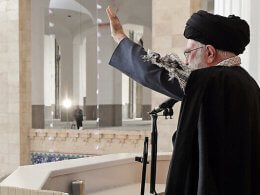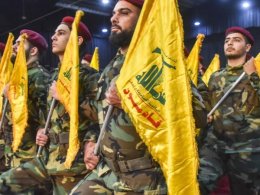New evidence Iran evaded sanctions, continued nuclear weapons development with Venezuela
New evidence suggests Iran received help from Venezuela with its nuclear program despite a decade of U.N.-mandated sanctions aimed at curbing the rouge regime’s controversial nuclear and ballistic missile programs.
A 2009 document obtained by Brazil’s leading weekly, Veja magazine, shows late dictator President Hugo Chavez signing off on the release of funds to help Iran with its nuclear ambitions.
Specifically, the document states the funds were to be designated for the import of equipment for a gunpowder factory and the development of production plants for nitroglycerin and nitrocellulose, elements used in rocket propulsion for Iran’s government. There is also the suggestion that Chavez may have helped Iran produce rocket motors.
The document provides written proof that Iran successfully continued with its weapons-building program, circumventing what were perceived as ‘watertight’ sanctions.
The revelation comes as Iran’s Foreign Minister Javad Zarif is currently touring South America visiting Bolivia, Chile, Cuba, Ecuador Nicaragua and Venezuela, in what Iranian officials have billed as a “new chapter” in strengthening political and economic ties between Iran and South American countries.
“In my line of work, I can’t believe in coincidences. I can’t believe that $400 million was given to Iran in cash and now Zarif is running through Latin America. The Iranian regime understands that in Latin America corruption can be used to their advantage,” said Joseph M. Humire, executive director of the Center for a Secure Free Society, who points to the long-standing relationship between Venezuela and Hezbollah, Iran’s terror proxy.
Humire is also the co-editor of Iran’s Strategic Penetration of Latin America.
“Latin America is Hezbollah’s biggest cash cow. It would make sense that this is a very strategic visit by Zarif to continue some of Iran’s previous activities which were challenged because of sanctions,” Humire said, adding that Hezbollah has been deeply involved in drug trafficking in Latin America to offset any financial hardship brought about by the sanctions.
As a member state of the United Nations, Venezuela was obliged to cooperate with United Nations Security Council Resolution 1747 that unanimously called for a ban on arm sales to the Islamic republic.
But uncertainties were already high in 2009 when Turkey intercepted a suspicious shipment from Iran to Venezuela containing 22 containers of lab equipment capable of producing explosives but was labelled as “tractor parts.”
Humire, who has long analyzed Iran’s involvement in Latin America has studied twenty different transactions between the two countries in several areas, finding that even those dealings considered legal, were problematic due to the "dual use" that they could present.
“Iran’s secretive military programs go far beyond violating sanctions. It has to do with providing military and industrial support in these countries,” Humire said.
“At the far end of that, you can begin to speculate they are beginning to develop military assets.”
In a 2011 hearing at the U.S. Senate Armed Services Committee, then head of U.S. Southern command General Douglas Fraser told the committee that the U.S. was concerned about weekly flights between Venezuela and Iran dubbed the “Axis of Evil Express,” that could potentially be used to transport terrorists and weapons.
"My concern, as I look at it, is the fact that there are flights between Iran and Venezuela on a weekly basis, and visas are not required for entrance into Venezuela or Bolivia or Nicaragua," Fraser told the hearing.
Another discrepancy in Iran’s investments in Venezuela, according to Humire, is considering that if the Iranian regime was after economic growth, they would go to "viable countries like Brazil, Colombia, not the ones that are broke, particularly with the heavy instability in Venezuela.”









